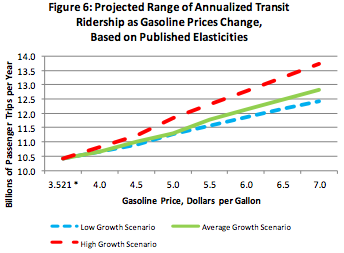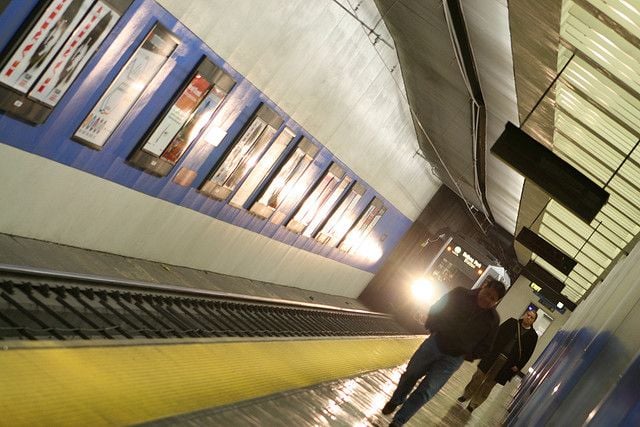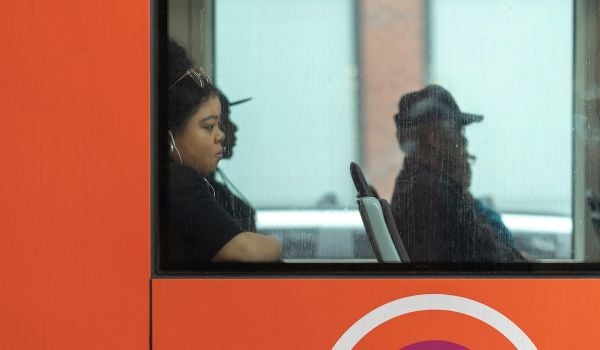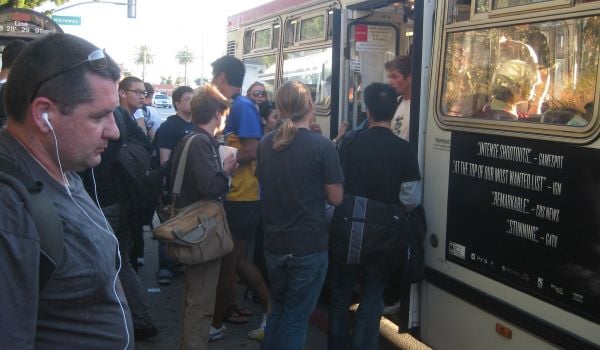Urban Nation is an occasional column by Ben Adler, NAC’s federal correspondent, on the latest urban-related policy issues in Washington.
It looks as if the long overdue reauthorization of the Surface Transportation law may soon get a tenth temporary extension under current rules instead of a multi-year renewal. Either of the two likely outcomes — continued congressional paralysis or a law that cuts funding for mass transit, bicycle and pedestrian accommodations — will create a more difficult environment for cities.
Currently, the House and Senate are trying to hammer out a compromise in the Conference Committee. In March, the Senate passed a two-year renewal with bipartisan support that basically keeps current rules in place and covers the shortfall in funding from the gasoline tax with $12 billion in general revenues.
This is not the outcome transportation and smart growth advocates dreamed of when Democrats were in control of Congress. Back then, they harbored fantasies of addressing our massive infrastructure deficit with a larger investment and a shift in priorities toward projects that were evaluated on efficiency and environmental impact.
But they would rather have the Senate bill than the alternatives. At least a two-year bill would give cities some breathing room to undertake projects. When the law is only extended for three or six months at a time, it hamstrings local governments. Major road and rail projects take years, and cities cannot begin a project if federal funding might dry up in a matter of months.
House Republicans, though, are trying to impose conditions on a reauthorization that might be even worse than no reauthorization at all. Their failed transportation bill, HR 7, contained numerous provisions designed to evade environmental review and favor automobiles over all other forms of transportation. Consequently, it would have disadvantaged urban communities. In an open letter to Congress, The Leadership Conference on Civil Rights (LCCR) complained that HR 7 “would severely limit access to affordable and accessible public transportation and safe roadways.”
The letter continues:
H.R. 7 not only removes dedicated funding that helps low income communities, it also eliminates discretionary transit programs, including the Transportation Investment Generating Economic Recovery (TIGER)…. H.R. 7 also cuts the small amount of dedicated funding for bicycle and pedestrian programs, such as Safe Routes to School, which has created safe routes for children to bike and walk to and from schools, including students with disabilities, in rural, and urban communities.
The House was ultimately unable to pass such a bill, so they passed a three-month extension just to get into Conference with the Senate. But transportation experts say Republicans are pushing for controversial measures from HR 7 nonetheless.
“House negotiators are acting as if they passed a bill and they know what their house supports,” said David Goldberg, communications director for Transportation for America. “They don’t. They went to Conference without any consensus.”
And it looks like they may emerge from the Conference Committee without a consensus as well. As The Hill reported on June 10, House Republicans may be deliberately avoiding making a compromise so as to deny President Obama an achievement before the election. House Speaker John Boehner (R-OH) suggested a mere six-month extension of the current law, and insiders speculate that House Majority Leader Eric Cantor (R-Va.) is trying to sabotage any larger agreement.

Credit: APTA
This likely failure comes at a particularly bad time for cities and the urban economy. As a recent report from the American Public Transportation Association demonstrates, Americans are continuing their trend toward using more transit and driving less, and the recent spike in gas prices is projected to increase mass transit ridership even further.
But mass transit systems are in no shape to handle increased ridership. Due to the recession they have suffered cuts in government funding, which have in turn led to reductions in service and overcrowding on popular routes. Given that infrastructure investment would boost lagging employment and economic demand, now would be an especially good time to invest more, not less, in transit.
Advocates for cities, such as the U.S. Conference of Mayors, are trying to mobilize public pressure on Congress to pass a bill. But, as congressional Republicans have demonstrated with their resistance to passing any further economic stimulus, they are confident that their approach of halting economic progress will make Obama look incompetent. If they stick to their guns, they may be the political winners, but the biggest losers will be Americans who are dependent on overburdened transportation infrastructure.

Ben Adler is a journalist in New York. He is a former reporter for Grist, The Nation, Newsweek and Politico, and he has written for The New York Times, The Atlantic, The Guardian and The New Republic.




_600_350_80_s_c1.jpg)











